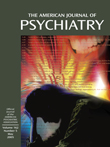The American Psychiatric Publishing Textbook of Substance Abuse Treatment, 3rd ed.
This volume is indeed a comprehensive compendium on the subject of substance abuse. I had the privilege several years ago to review the second edition of this volume for the Journal. This third edition is even more complete and more comprehensive.
The editors have brought together more than 90 contributors to this volume. All are knowledgeable about their areas of focus, and they range from individuals whose names are synonymous with substance abuse treatment to those who are on the cutting edge of research for new approaches and new treatments. Despite the large number of contributors, the volume has an internal consistency in approach and presentation that aids the reader and clinician.
This text presents initial sections on the commonalities relative to substances of abuse and the biochemical and physiological responses to these substances. The majority of the text then focuses quite directly on the treatment of each of the major areas of abuse. The initial sections are thus more research and technically oriented and present the reader with the latest in the biological substrates of abuse, and the later chapters are much more practical and specific for the more general reader.
Within each category, the book presents the history of the attempts at treatment for each substance, the characteristics of the abuse syndrome, the different current treatment methodologies and their effectiveness, and the current and future challenges. The book presents the treatment options clearly and in concert with the latest outcome research. It does not simply give credence to “sacred cows,” when, for instance, it notes that “mandatory” meetings of Alcoholics Anonymous as a sole treatment modality is not “proven” to be always effective.
One very small concern is that although there is an expanded section in this volume on the needs and treatments of special populations, the special needs of ethnic minorities and the elderly are still compressed into one excellent but too short chapter. Both of these groups pose very specific and unique problems. With the aging of the general population, substance abuse and even medication confusion in the elderly will be a growing problem, and one that should be given an expanded specific focus in such a volume.
This volume, however, is quite excellent. It is written in such a manner and with enough breadth that it should be read by and on the reference shelves of not only family physicians treating a whole array of substance-abusing patients but also the addictionologist specializing in the latest therapies in the field.



